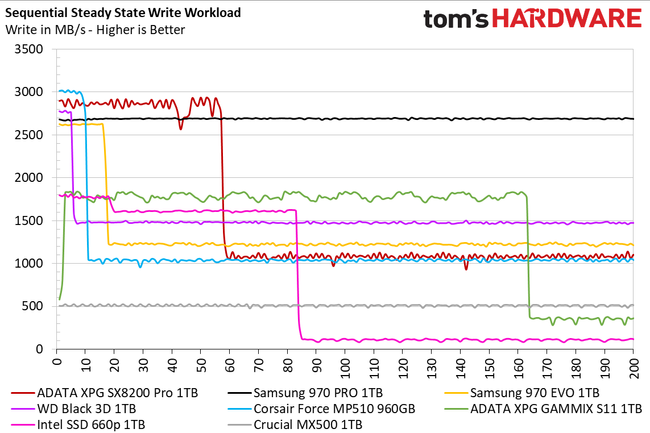Hey,
So, I'm a bit confused about what my Music & Video production system does regarding read/write onto a drive.
Ideally, I would like an SLC based drive but, I wouldn't mind sacrificing a little bit of performance to save some cash.
I'm looking to upgrade my laptop 250GB SSD's (1x M.2 NVMe and 2x 2.5") to 1TB ones' during the holiday sales.
Are there any suggestions on the drives or NANDs I should consider?
Best,
Panda
Some details:
Win 10 64 bit
M.2 = System drive (Win, Programs (Cubase, Davinci Resolve), Virtual Instruments...)
SSD 1 = Project files and Google Drive sync.
SSD 2 = Audio Sample Library
My backups are JBOD external HDD storage + Cloud backup
So, I'm a bit confused about what my Music & Video production system does regarding read/write onto a drive.
Ideally, I would like an SLC based drive but, I wouldn't mind sacrificing a little bit of performance to save some cash.
I'm looking to upgrade my laptop 250GB SSD's (1x M.2 NVMe and 2x 2.5") to 1TB ones' during the holiday sales.
Are there any suggestions on the drives or NANDs I should consider?
Best,
Panda
Some details:
Win 10 64 bit
M.2 = System drive (Win, Programs (Cubase, Davinci Resolve), Virtual Instruments...)
SSD 1 = Project files and Google Drive sync.
SSD 2 = Audio Sample Library
My backups are JBOD external HDD storage + Cloud backup



